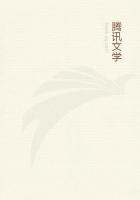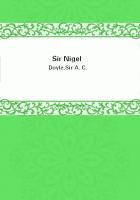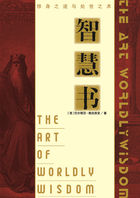Nothing is more futile than general discussions of the relative importance of heredity and environment. It is much like the case of matter versus mind; both are indispensable to every phase of life, and neither can exist apart from the other: they are coordinate in importance and incommensurable in nature. One might as well ask whether the soil or the seed predominates in the formation (317) of a tree, as whether nature does more for us than nurture. The fact that most writers have a predilection for one of these factors at the expense of the other (Mr. Galton and the biological school, for example, seeing heredity everywhere, and not much else, while psychologists and sociologists put the stress on influence) means only that some are trained to attend to one class of facts and some to another. One may be more relevant for a given practical purpose than the other, but to make a general opposition is unintelligent.
To the eye of sentiment a new-born child offers a moving contrast to the ancient and grimy world into which it so innocently enters; the one formed, apparently, for all that is pure and good, "trailing clouds of glory" as some think, from a more spiritual world than ours, pathetically unconscious of anything but joy; the other gray and saturnine, sure to prove in many ways a prison-house, perhaps a foul one. "Full soon thy soul shall have her earthly freight." [1] No doubt, however, the pathos of this contrast arises in part from somewhat fallacious preconceptions. The imagination idealizes the child, reading its own visions into his innocence as it does into the innocence of the sea and the mountains, and contrasting his future career not with what he is, but with an ideal of what he might become. In truth the child already feels, in his own way, the painful side of life; he has the seeds of darkness in him as well as those of light, and cannot in strictness be said to be any (318) better than the world. The good of life transcends his imagination as much as does the evil, and he could not become anything at all except in a social world. The pity of the matter which may well move every one who thinks of it to work for better homes, schools and playgrounds, is simply that we are about to make so poor a use of a plastic material, that he might be so much better and happier if we would prepare a better place for him.
It is true, in a sense, as Bacon says, that youth has more of divinity, but perhaps we might also say that it has more of deviltry; the younger life is, the more unbound it is, not yet in harness, with more divine insight and more reckless passion, and adolescence is the period of criminality as well as of poetry.
There is a natural affinity between childhood and democracy; the latter implying, indeed, that we are to become more as little children, more simple, frank and human. And it is a very proper part of the democratic movement that more and more prestige is attaching to childhood, that it is more studied, cherished and respected. Probably nothing else gives such cogency to the idea of reform as to think of what it means to children. We wish to know that all the children of the land are happily unfolding their minds and hearts at home, school and play; and that there is a gradual induction into useful work, which also proceeds regularly and happily. This calls for better homes and neighborhoods, and the overcoming of conditions that degrade them; it implies better schools, the suppression of child-labor, regular industrial education, wholesome and fairly paid woark and reasonable security of position. While the child is not exactly better (319) than the world, his possibilities make us feel that the world ought to be better for his sake. As fast as a child becomes a person he also becomes member of the existing social order. '['his is simply a case of a whole and one of its differentiated parts; having so often insisted that society and the individual are aspects of the same thing, I need not enlarge upon it here. Even the degenerate, so far as they have faculty enough to be human, live in the social order and are as much one with it as the rest of mankind. We simply cannot separate the individual from society at large;to get a contrast we must pass on to consider him in relation to particular institutions, or to institutions in general as distinguished from more plastic phases of life.
An institution is a mature, specialized and comparatively rigid part of the social structure. It is made up of persons, but not of whole persons;each one enters into it with a trained and specialized part of himself.
Consider, for instance, the legal part of a lawyer, the ecclesiastical part of a church member or the business part of a merchant. In antithesis to the institution, therefore, the person represents the wholeness and humanness of life; he is, as Professor Alfred Lloyd says, [2] "a corrector of partiality, and a translator and distributor of special development."A man is no man at all if he is merely a piece of an institution; he must stand also for human nature, for the instinctive, the plastic and the ideal.
(320) The saying that corporations have no soul expresses well enough this defect of all definite social structures, which gives rise to an irrepressible conflict between them and the freer and larger impulses of human nature.
Just in proportion as they achieve an effective special mechanism for a narrow purpose, they lose humanness, breadth and adaptability. As we have to be specially on our guard against commercial corporations, because of their union of power and impersonality, so we should be against all institutions.
The institution represents might, and also, perhaps, right, but right organized, mature, perhaps gone to seed, never fresh and unrecognized.
New right, or moral progress, always begins in a revolt against institutions.


